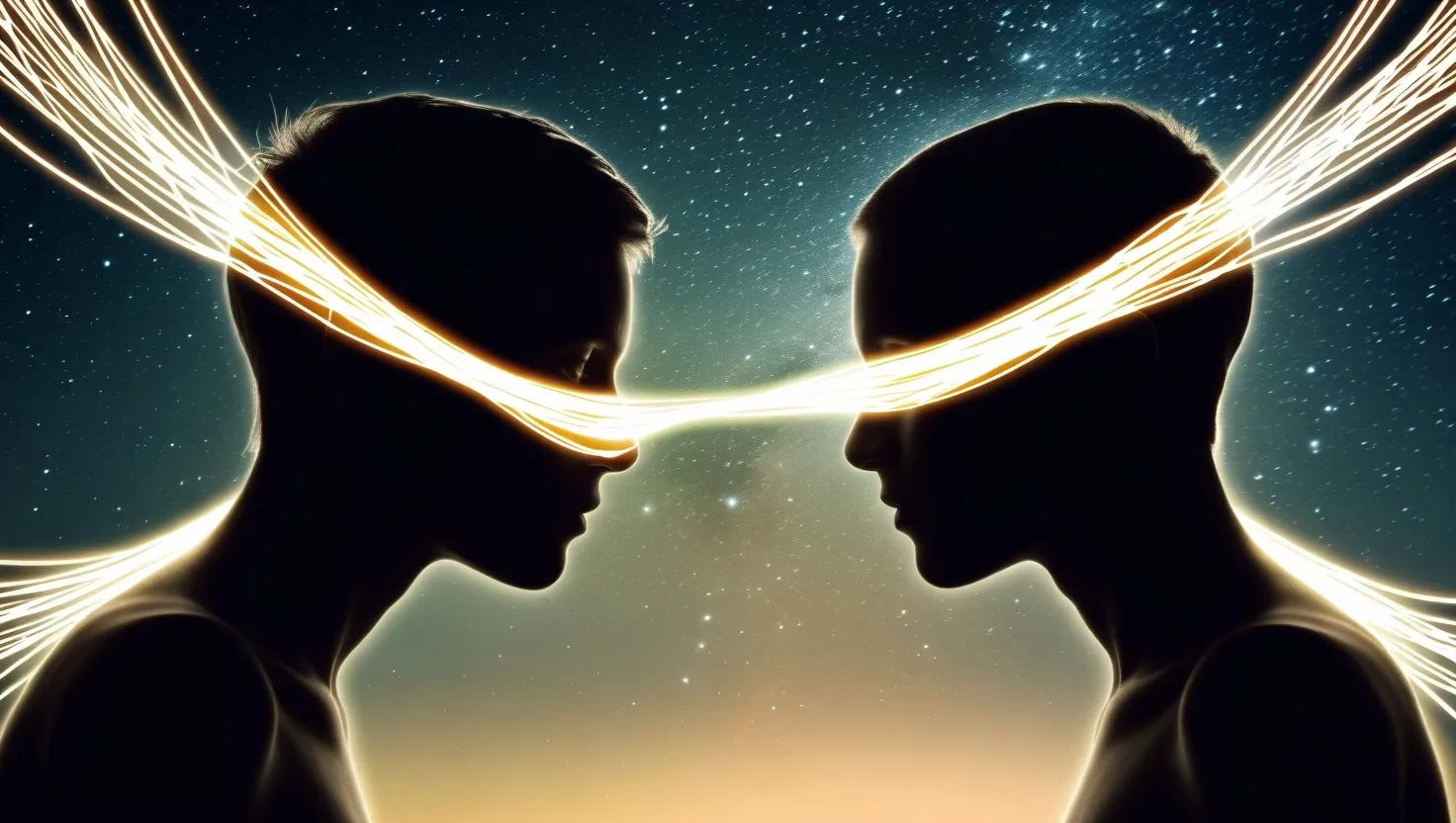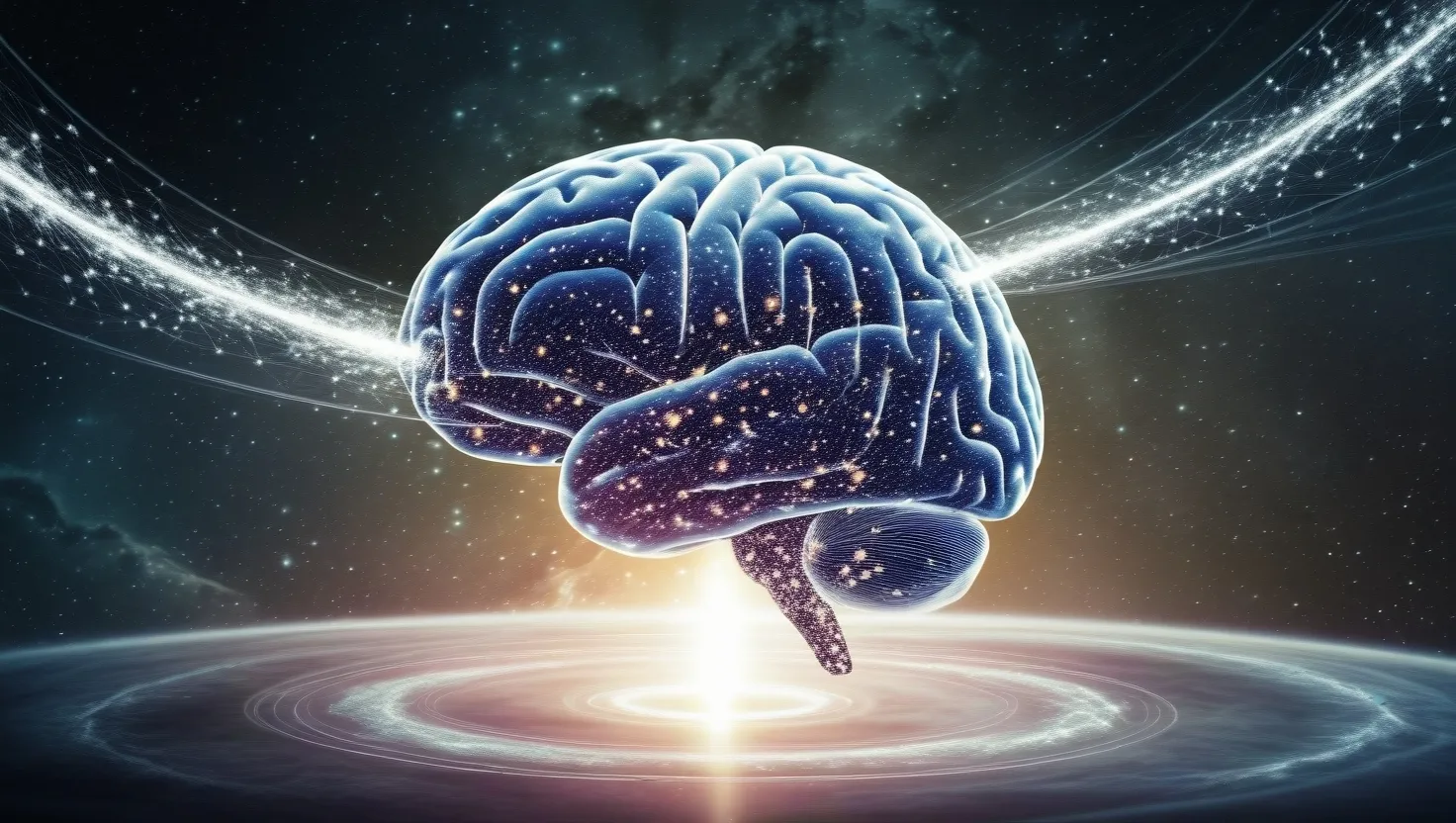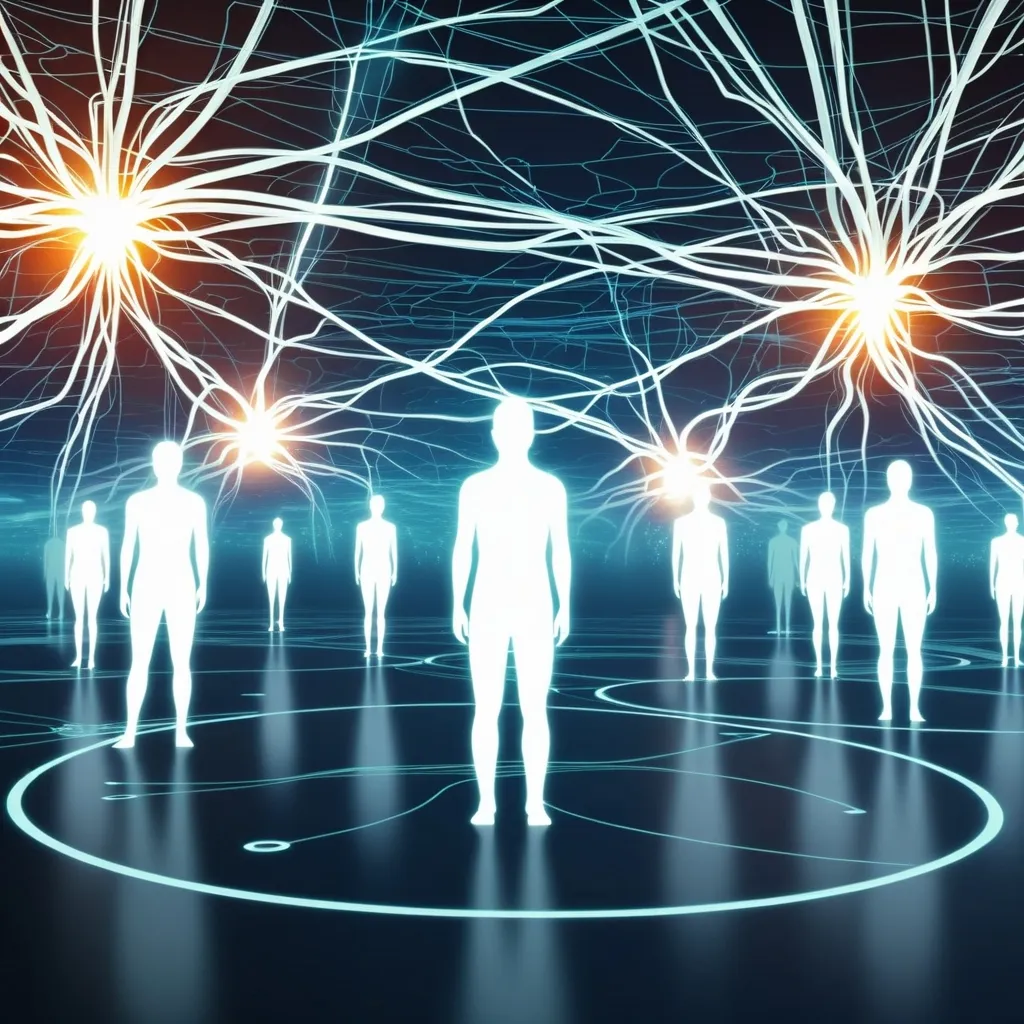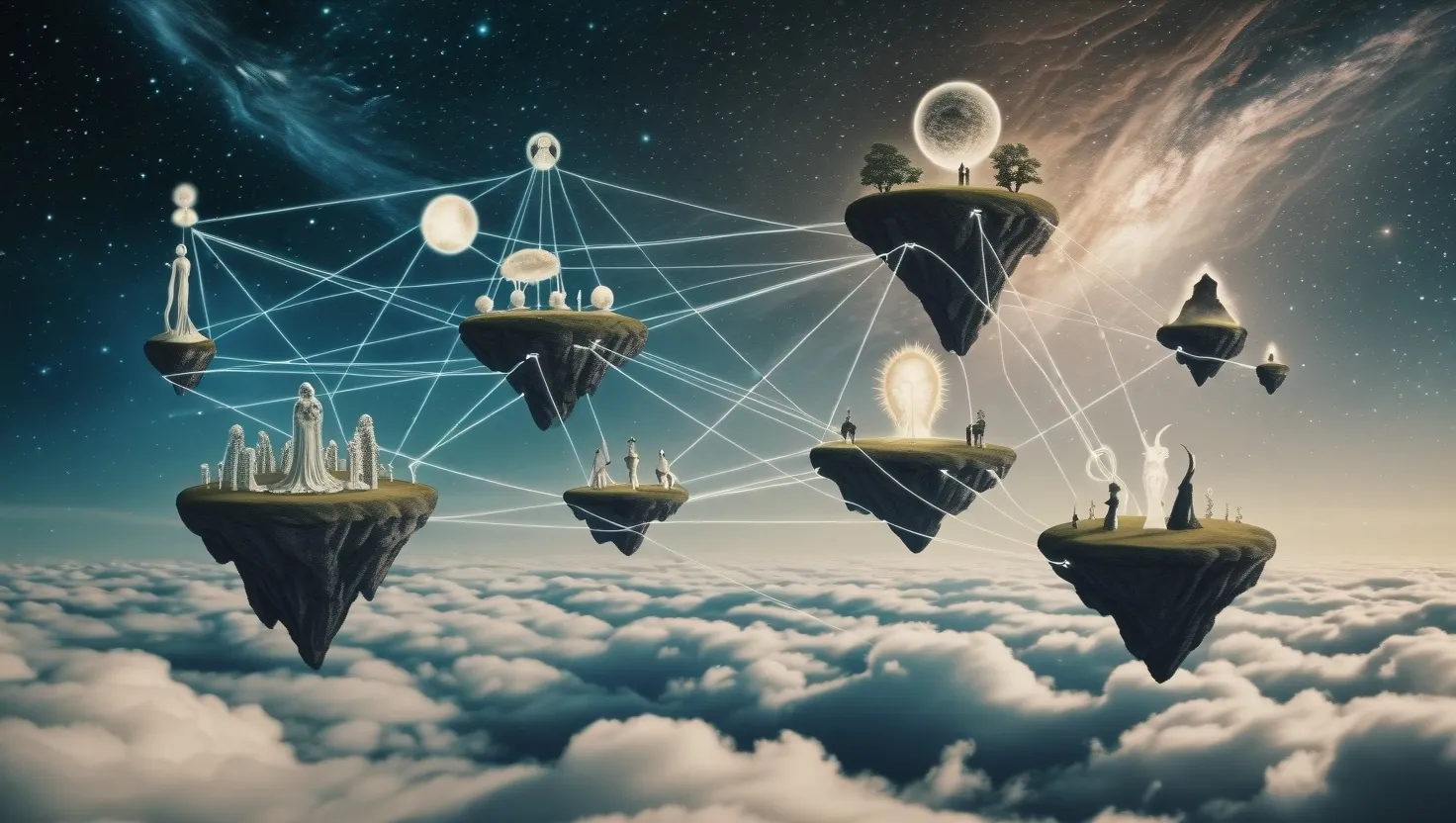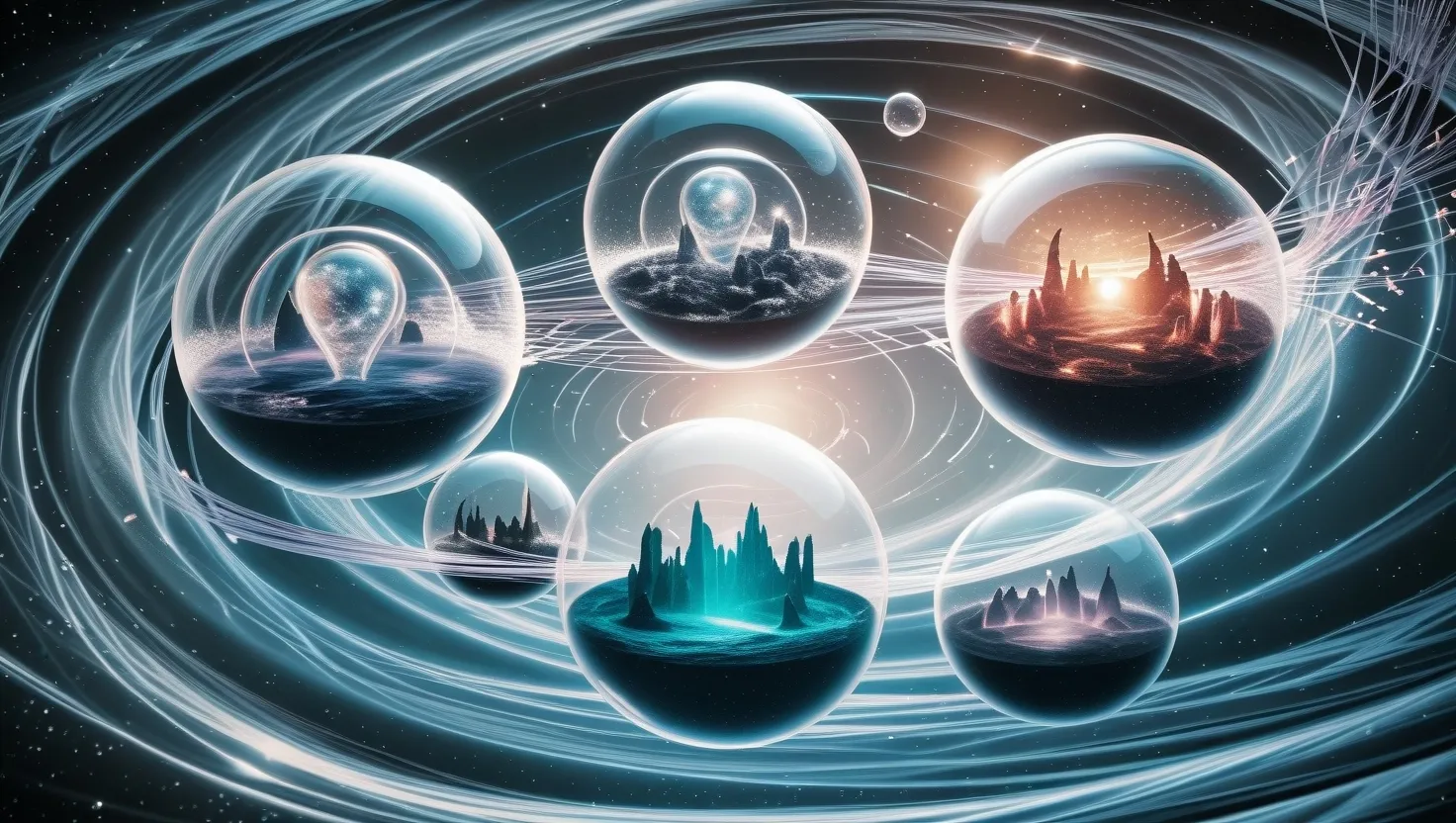Have you ever felt an inexplicable connection to someone who is miles away, a sense that you can almost read their thoughts or feel their emotions as if they were your own? This phenomenon, often dismissed as mere intuition or coincidence, might be more than just a figment of our imagination. A growing body of research suggests that our minds could be linked through a mechanism that sounds like science fiction but is grounded in the strange and fascinating world of quantum physics: quantum entanglement.
Quantum entanglement is a phenomenon where two or more particles become connected in such a way that the state of one particle is instantly affected by the state of the other, regardless of the distance between them. This concept has been well-documented in the realm of subatomic particles, but what if it applies to something as complex and mysterious as human consciousness?
Recent studies have begun to explore the idea that quantum mechanics, particularly entanglement, might play a crucial role in how our brains function. Most neuroscientists have traditionally viewed the brain as a classical system, operating under the rules of classical physics. However, some researchers are now suggesting that the brain’s incredible computational power and its ability to generate consciousness might be better explained by quantum processes.
One of the key pieces of evidence comes from a team of researchers at Trinity College Dublin. Using a modified MRI machine, they set out to detect whether proton spins in the brain could become entangled. Entanglement, in this context, would mean that the spins of these protons are connected in a way that transcends classical physics. The researchers found that during conscious awareness, there was a signal indicating entanglement, but this signal disappeared when the subjects fell asleep. This suggests that some aspect of our brain activity, possibly even consciousness itself, operates on a quantum level.
This idea is not new, but it has gained significant traction in recent years. The Penrose-Hameroff model, proposed by physicist Roger Penrose and anesthesiologist Stuart Hameroff, suggests that networks of cytoskeleton tubules within neurons could act as a kind of quantum computer. This model posits that these tubules, which provide structural support to cells, might be involved in processing information in a quantum manner, which could explain the brain’s remarkable computational abilities and its capacity for consciousness.
But how does this translate to the feeling of being connected to others across vast distances? If our brains are indeed operating on a quantum level, it’s possible that this could facilitate a form of non-local communication or connection. Non-locality, a fundamental aspect of quantum mechanics, allows for instantaneous communication between entangled particles, regardless of the distance between them.
Imagine if this principle applied to human minds. It could explain phenomena like telepathy or the shared hunches that sometimes occur between people who are closely connected. It might even suggest that our memories and experiences are not isolated to our individual brains but are part of a larger, interconnected web of consciousness.
However, this idea is not without its challenges. Quantum effects are typically observed at very low temperatures and in highly controlled environments, which makes it difficult to imagine how they could survive in the warm, dynamic environment of the human brain. Critics argue that the brain’s physiological temperatures and its constant interaction with the environment would quickly destroy any quantum coherence, making it impossible for quantum effects to play a significant role.
Despite these criticisms, researchers continue to explore this fascinating area. The correlation between certain brainwaves and the Earth’s Schumann Resonances, for example, has been noted. Schumann Resonances are the Earth’s natural electromagnetic pulses, and some studies suggest that these resonances can synchronize with brain activity, potentially linking our minds to the Earth’s electromagnetic field and, by extension, to each other.
The implications of this theory are profound. If we could tap into this mental web on purpose, it could revolutionize how we communicate and share information. Imagine being able to communicate without the need for phones or other devices, or sharing memories across generations in a way that transcends traditional inheritance. It even opens up the possibility of exploring alternate versions of ourselves, a concept that sounds like the stuff of science fiction but could be grounded in the strange realities of quantum mechanics.
Of course, this is still highly speculative. While the findings are intriguing, they need to be replicated and further studied to confirm whether quantum entanglement truly plays a role in human consciousness. However, the potential is too great to ignore. If we are indeed part of a vast, interconnected consciousness, our understanding of the world and our place in it would be fundamentally altered.
As we delve deeper into this mystery, we begin to question everything we thought we knew about the nature of mind and its place in the universe. That feeling of being cosmically connected might not be just a figment of our imagination; it might be a glimpse into a much larger, interconnected reality. And if that’s the case, then the boundaries between individual minds begin to blur, and we start to see ourselves as part of a much greater whole.
In this context, the distinction between self and other becomes less clear. Our thoughts, emotions, and experiences could be intertwined with those of others in ways we can’t yet fully comprehend. This is not just a philosophical musing but a scientific hypothesis that challenges our current understanding of consciousness and the human experience.
As researchers continue to explore this frontier, we are forced to confront the limits of our current knowledge and the possibilities that lie beyond. The idea that our minds are linked across space and time through quantum entanglement is a mind-bending concept that, if proven, would redefine our understanding of reality. It’s a journey into the unknown, where the boundaries between science and science fiction begin to blur, and the mysteries of the human mind await unraveling.
In the end, whether or not this theory proves to be true, it has already expanded our imagination and pushed the boundaries of what we consider possible. The search for answers to these profound questions is a journey that not only deepens our understanding of the world but also challenges us to rethink our very existence. And perhaps, just perhaps, that feeling of being cosmically connected is more than just a feeling—it’s a glimpse into a reality that is far more interconnected and mysterious than we ever imagined.
